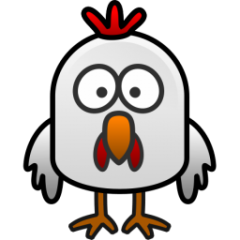Flossing a chicken’s teeth would be much easier than writing a short story. Or, that’s what I thought.
I found myself facing this problem after writing six novels. I couldn’t wrap my head around a shorter piece of work. Everything I tried I sounded like an outline for a novel.
Books on outlining didn’t help. Workshops provided little insight. Critique groups, well, I could help someone to better tell their story. Heck, I’d even edited an acclaimed anthology, but I couldn’t write a good short story to save myself.
How could I overcome this block?
I really wanted to know what eluded me about this form. After many attempts, I found a formula that helped in all aspects of short story writing. This four step process taught me how to write short stories:
1) Read short stories, not novels. By reading short stories I learned what forms and genres I really liked and disliked. There’s no point in trying to write in a genre or with a style that doesn’t speak to you.
2) Choose a genre which speaks to you. For example, I love some literary style authors and I love science fiction stories. Literary style I can read but I can’t figure out the voice. With science fiction I understand the voice and the genre, but I’m not as adept as I’d like to be with the science. Hence, I don’t have the confidence to write it. How did I learn this about myself? Check out point number three …
3) Retell the stories that interest you. This is how I figured out if I had the desire, the passion to write certain stories. When I retold a story, I paid close attention to the plot and how it unfolded. I became aware of style, plot, character and the tropes common to the genre. Most importantly, I had to feel the voice and the passion for the genre. Once I discovered what stories energized and excited me, the final step was easy.
4) Write an original story in the genre and voice that excites you.
That’s it. It’s that easy.
Should you publish or submit a retold story? That’s another matter. Issues of public domain arise and rightly so. Some stories I deleted because my intent was only to learn from them. Others, even if there are no public domain issues, may be published in the future but with full disclosure as to the source of inspiration.
Where did I finally find my voice? With fables and fairy tales and people’s stories of old. I love it. The most curious thing I learned was that it wasn’t about setting for me for I’ve set my stories in worlds of fantasy, science fiction, and yes, there’s even a literary one or two! My real journey was to find my story telling voice.
The cheat of the matter was this: later on, I recognized that my writing voice had always been with me. I had heard it, felt it even but I had tried to squeeze it into forms and stories that didn’t suit it. That was the heart of the problem. That is the heart of this journey – to hear the voice within you and to find the form that fits it.
